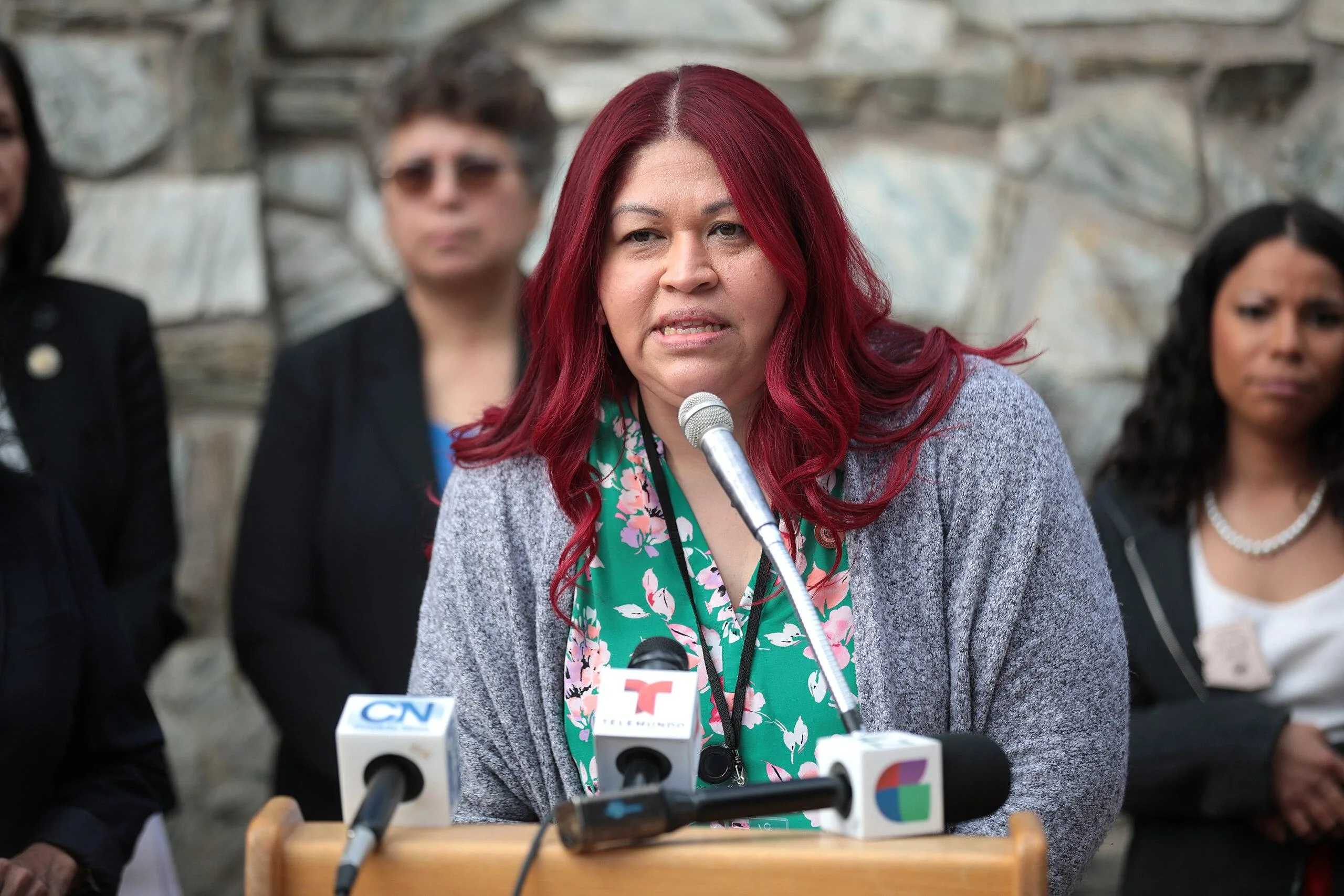Arizona Bills Would Ban Felony Murder Law—Used to Charge Bystanders for Shootings by Police
State Sen. Anna Hernandez filed the bill following The Appeal’s investigation into the Phoenix Police Department’s shooting of Jacob Harris. Though police killed Harris, his friends were charged using the state’s felony murder statute. Tomorrow, a coalition will join Hernandez in a press conference to support the bill.

Arizona State Sen. Anna Hernandez introduced a bill last week to repeal the state’s felony murder law, which has repeatedly been used to imprison bystanders for killings committed by police officers. Hernandez also introduced a separate bill that would change the law so that people can only be charged with murder if they killed someone or helped kill someone.
Under Arizona’s felony murder law, people can be charged with murder even when they did not kill anyone. If someone dies while a person is committing certain felony offenses, such as robberies or certain drug offenses, that person can be charged with felony murder.
Senate Bill 1422 removes the sections of Arizona state law that allow people to be charged with murder even when they did not kill anyone. The bill would also give anyone previously convicted under the state’s felony murder statute a chance to be resentenced.
Senate Bill 1423, meanwhile, adds two sentences to the state’s homicide statute defining specific cases in which people can be charged with first-degree murder. One sentence states that people may be charged if the person is the actual killer. The second says someone can be charged with first-degree murder if the person is not the killer but had the intent to kill and “aided, abetted, counseled, commanded, induced, solicited, requested, or assisted” the actual killer in the conduct that caused the death.
Last year, The Appeal published a story that brought renewed attention to the Phoenix Police Department’s killing of Jacob Harris—and the incarceration of his three friends using the state’s felony murder law. In 2019, Phoenix Police Officer Kristopher Bertz shot 19-year-old Harris in the back, killing him. Police and prosecutors cleared Bertz of any wrongdoing. Instead, they charged three friends with Harris that night—Johnny Reed, Sariah Busani, and Jeremiah Triplett—with the murder. Reed, who was 14 years old at the time, was sentenced to 15 years in prison—more years than he had been alive at the time of his arrest.
Busani, aged 19, and Triplett, aged 20, were sentenced to 10 and 30 years respectively. All three have been incarcerated since the night police killed Harris.
Our reporting revealed that multiple law enforcement officials made false or misleading statements about the night of Harris’s death and deleted text messages related to the shooting. Thermal footage of the shooting obtained by The Appeal contradicted the Phoenix Police Department’s version of events.
Our investigation also raised questions about the department’s conduct prior to the shooting: officers had been surveilling Harris and his friends for over 12 hours at the time, believing that they were connected to a string of robberies. Though police had many opportunities to stop the group throughout the day, they ultimately chose to “allow a robbery to happen,” as one officer put it.
In a written statement, Hernandez told The Appeal she filed two bills in order to increase the likelihood at least one passes.
“These came about after conversations with the coalition supporting Mr. Roland Harris and the Free the Phoenix 3 [Coalition],” Hernandez said. “This statue is especially concerning as we have seen a rise in police shootings and what this could mean for other individuals that could be impacted by this law.”
Hernandez also praised The Appeal’s reporting in a Tweet last March.
Tomorrow morning, the Justice for Jacob Harris and Free the Phoenix Three community coalitions—which formed in response to The Appeal’s investigation—will hold a press conference alongside Hernandez outside the state capitol to support the bills. The coalitions include the Anti Police-Terror Project, Black Lives Matter Phoenix Metro, Decarcerate Arizona, and the families of Harris, Reed, Busani, and Triplett.
Several states, including Hawaii, Kentucky, Massachusetts, and Michigan, have abolished the felony murder rule.
Hernandez’s two bills each have more than seven co-sponsors. The state senate is currently composed of 14 Democrats and 16 Republicans. The state house has 29 Democrats and 31 Republicans. Some Republican lawmakers in Arizona have supported criminal justice reform measures in the past. Arizona’s governor, Katie Hobbs, is a Democrat who has endorsed criminal legal system reform. The new round of bills also puts added pressure on Hobbs to grant clemency to Harris’s three friends.
This is a breaking story. This post will be updated.
